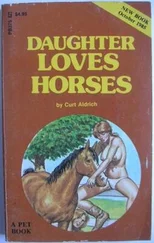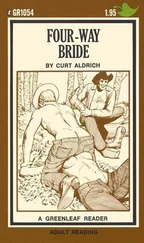Arrived there she found eight men at work—her father and her own two brothers, those other brothers, Mr. Horace Akin and Mr. Wallace Akin, Mr. Mel Manson, Mr. Burrill, and Wayne Lockwood himself—so the cabin would be going up in short order. It was to be good-sized, too, sixteen by twenty-four, Phineas said. Some of the cabins in the Valley were only ten by twelve, or twelve by sixteen. When Suzanne was setting out the lunch on a grassy place near the little grove, she heard Mr. Burrill joking Wayne Lockwood about going back to get a bride from the east to live in the good-sized cabin.
Suzanne cocked her ears, barely stirring, so she might hear the answer and have news a-plenty to tell at home. It would be big fun to be able to tell the girls all about the eastern bride coming out here after their silly joking this morning. It would serve them right, too, for laughing so at her. Probably some of them were already setting their caps for him, and this would just knock their caps over on their ears.
But Wayne only laughed at Mr. Burrill’s insinuations. “Ho-ho!” he said at once. “I’ve no betrothed back home, no woman on my conscience, and I’m of no mind to marry. I’m going to get a lot of land ahead and bring in some sheep before I think of that, and make money, too, I hope. No, I’ve no girl awaiting me at all, anywhere.” He made it so emphatic that if Mr. Burrill had been versed in the plays of one William Shakespeare, he might have thought that his informant, like a certain person did protest too much. But Mr. Burrill was no Shakespearian addict, and Wayne Lockwood was merely stating his convictions as he felt he should. For how could a practical and hardworking young settler be saying that foolish thing which was in his heart, that somewhere there waited for him a beautiful lady?
Suzanne looked at him shyly out of the corners of her big eyes. She thought she had never seen so good-looking a young man. Something made you like just everything about him, the way his wavy light hair went back from his forehead, his direct-looking blue eyes, the way he held his head, the way his mouth pulled up at the corners when he smiled, that light-footed way of his walking. Even his strong brown hands pleased her. Well, if he didn’t have a betrothed back east, maybe after all one of the girls could get him. She would think it all out on the way home.
That was a play Suzanne had of her very own which no one of the family knew anything about. She had a secret gift whereby she could live in either one of two worlds, just as she chose, and she scarcely knew which one she liked better. It was no trouble at all to change from one to the other, as easy, almost, as opening the wooden door between the main room and the lean-to. There was the real world in which you worked, played games with Celia, built a store by the log stable, ate fried prairie-chicken and wild strawberries, went to school in the new log school-house, made corn-cob dolls, rode Jupiter over the prairies, went down the trail to meet Pa or Henry when they came from Dubuque with a load of merchandise—oh, a hundred nice things which you could see and touch and really do. But the other—that was a lovely world, too, and no one knew about that one and no one could enter it but herself. She went into it whenever she chose. All you had to do was to open the door . . . and there you were. She had tried once to tell Celia about it, would have liked to have Celia live in it sometimes with her. Celia was only a year older than she was, but even though they were so close in age and slept together, Celia could not seem to understand. “What do you mean that you know people who don’t really live? Ghosts?” she had asked. “Ma says lots of folks think ghosts come back to earth . . . and she herself has had lots of premernitions . . .”
“No . . . oh, no, Celia. They just seem alive. They’re handsome people and they move around in my mind. I can see them as plain as day and can make them do anything I want to.”
“You need sassafras. I’m going to tell Ma.”
“Oh, don’t, Celia. Ma wouldn’t understand either.” Yes, of all people she knew Ma would be the least likely to understand. Ma’s world was so definitely one of corn-bread, soap, and carpet rags.
On the way back home, relieved of her basket, she walked Jupiter and gave herself the pleasure of changing worlds. Besides, there was no use getting home too soon with candles being dipped.
Now she had a new person to inhabit this country which no one entered but herself—Wayne Lockwood. This was the first time a real person had ever been admitted, the only time that any one of flesh and blood was nice enough and handsome enough to mingle with all those other people who lived in her fancy.
It was going to be almost impossible to take any of her sisters into that imaginary place, not one being beautiful or good enough to fit into it, but she would do her best to try them out, stand each one up by the side of Wayne Lockwood and see how she fared, giving them all the benefit of the doubt, as it were.
Wayne and Sabina? No, Sabina was too bossy and older than Wayne. There wasn’t much use bothering with her, anyway, because Mr. Tom Bostwick was always casting sheep’s eyes at her and no matter what she said now, Sabina would probably marry him.
Wayne and Emily? Emily was lots of fun and Ma always said she was her right-hand man, but she wasn’t the one at all with her red hair and freckles.
Wayne and Jeanie? Jeanie was prettier than Emily and men and boys liked her when she rolled her eyes around as though she knew something they didn’t know. She had two beaus now and she admired to have them fight over her. But whoever liked Wayne Lockwood must never like any one else.
Wayne and Phoebe Lou? No. Phoebe Lou teased people too much and made jokes about every one. And a girl who liked Wayne must like him more seriously than Phoebe Lou could ever like any one.
Wayne and Melinda? Ma wouldn’t let Melinda go yet with a beau. Besides she acted just like a boy dressed up in girls’ clothes and whoever mated with Wayne Lockwood must not be tomboyish.
Wayne and Celia? Celia wouldn’t be ready for a beau for a while either. Folks over at the settlement said Celia was pretty. But for some unexplainable reason she felt especially strong against Celia having him.
Oh, well, it looked as though there could be no match with any of the Martin girls after all. It would just have to be some strange lady like those that moved around in her play—a pretty lady with a silk dress and a carriage parasol. She could see her now looking something like the beautiful Miss Tyndal in the 1847 Parlor Annual, sort of bursting out of the top of her tight basque and holding a lace handkerchief and a nosegay. Or maybe the Grecian Exile with her hands tucked under her chin and her eyes as big as saucers. She could see her sitting in a carriage, and Wayne Lockwood, so tall and handsome, coming up to talk to her. He would reach out to take the parasol and . . .
“Su—zanne!” Phoebe Lou’s voice hallooed lustily across the intervening space of the prairie with emphatic syllables. “We’ve found . . . the first . . . ripe straw . . . ber . . . rees . . . You . . . have . . . to . . . pick.”
As easily and as speedily as one slams a door, Suzanne abandoned her magic country and its people, left Wayne Lockwood suspended in mid-air reaching for a parasol he was never to possess, slapped the reins on the surprised and indignant Jupiter, and flew along over the trail of broken grasses into the world of candle-dipping and berry-picking.
The cabin was finished, thanks to the practical neighborliness of the settlers, and for the first full day this eighth of July, 1854, young Wayne Lockwood was alone on his place. With youthful energy he put in every moment of his time. So much was there to be done that he could scarcely hold himself steadily at one task for wanting to break off and start another. There was wood enough for countless fires from the trimming of the house logs so that was one piece of work which need not take his time. But a hundred other things should be done, one almost as important as the next. Paramount among them was to be the breaking of the land. Then, too, he must prepare shelter for the sheep he was going to bring in soon. This one day, however, he devoted to getting his cabin livable.
Читать дальше












